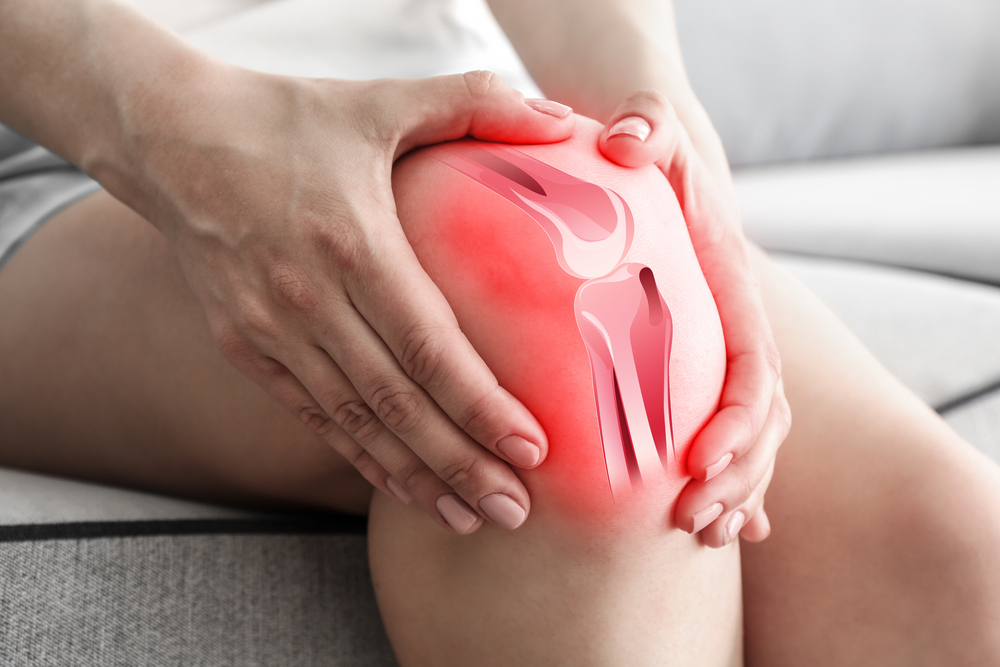
Watch Out! These Things Can Trigger Your Joint Pains!

Most of us have experienced having joint pains some time in our life. However, we’re clueless as to what caused the joint pain in the first place. The only two conditions we can think of are arthritis or osteoarthritis when neither condition does not sit well with us. However, there are tons of reasons as to why you’re feeling the ache in the first place. Here are the six reasons that contribute to your joint pains.
Allergic Reactions to Meds
Most medicines or prescribed drugs are issued by doctors to treat us from an infection or a medical condition. However, most of these medicines also produce side effects in our body. For example, the famous antibiotics penicillin can trigger inflammation in your body that causes you to become uncomfortable.

Africa Studio/Shutterstock
According to the American Academy of Pain Medicine President, Lynn Webster, MD, taking antibiotics can cause an inflammatory response to your body.
Aside from the joint pains, you may also notice you’ve developed a skin rash, red eyes, or maybe suffering from a GI irritation. If the joint pains you’re enduring becomes severe, he recommends you consult with your attending physician to compare whether the symptoms have started before or after you take a medicine.
If it’s the latter, you can ask the doctor to prescribe you with a different drug or start a new medication. Meanwhile, taking corticosteroids or antihistamines can help relieve the joint pains and other symptoms you’ve felt.
Gout Syndrome
This medical condition is often caused by the high levels of uric acid in your body which then form crystals that caused the inflammation in your joints. Most of the time, the intense joint pains started with a gout attack on your big toes. If left untreated, it can develop and spread in other areas like your ankles and knees. Though gout attacks are more common in men, women aren’t immune to it either.
Oftentimes, most women suffer from gout attack 20 years after their menopause. Your doctor may draw a fluid from the affected joint to look for crystals to confirm a diagnosis. These pains can be treated with NSAIDs to counter the inflammation. Regular exercise and reducing your alcohol intake can also help ease your gout.
Sarcoidosis
Normally, having a healthy immune system will fight off the foreign infections that invade your body and try to make you sick, but not for people with sarcoidosis. This inflammatory condition causes your immune cells to form clusters in different organs instead, mostly in your lungs and lymph glands.
This leads to symptoms like fatigue, fever, and wheezing. Fortunately, most joint symptoms can disappear after a few months. If you’re suffering from sarcoidosis, arthritis can go in remission within 6 months after taking NSAID or a steroid regimen.
Lyme Disease
Little ticks not only give you a painful bite, but they also carry a specific type of bacteria which can give your body Lyme disease. According to the American College of Rheumatology, the infection can spread in your body within weeks after the bite if you left it untreated or undiagnosed.
You’ll feel the symptoms of fever, headache, and even joint pains. According to a study conducted by Johns Hopkins researchers, you’ll suffer these chronic symptoms too if left untreated. If you’re suffering from these symptoms (especially during the Summer season), it’s better to consult your doctor. Also, make sure to know whether Lyme disease is common in your area.
Fibromyalgia
Fibromyalgia is a painful condition that is triggered by various causes, including stress. According to Webster, this condition is an inflammatory response in your central nervous system which mistakenly sends out the pain signals in your body.
According to a 2014 study, the MRI scans showed that people dealing with this condition have their brains overreacting to senses (such as smell or sound) and it responds with discomfort in your muscles and soft tissues. Webster recommends you consult with your physician if you’re experiencing from other symptoms like anxiety, fatigue, headaches, and depression.
More in Health & Well-being
-
`
Why Adults With ADHD Are 3x More Likely to Develop Dementia
We have all heard of ADHD, haven’t we? Hyper kids, distractions galore, restless minds – these are images we often associate...
December 11, 2023 -
`
Signs of Emotional Connection in Relationships
Building a strong connection with someone isn’t just about being in sync or sharing hobbies—it’s about that deeper bond, where you...
December 4, 2023 -
`
Hollywood’s Shortest Marriages: Britney Spears, Carmen Electra & More!
In the glitzy world of Hollywood, where fairy tales often unfold on the silver screen, there exists a flip side—a realm...
December 3, 2023 -
`
The Surprising Benefits of Unplugging
In today’s hyper-connected world, where we are constantly bombarded with notifications, messages, and the allure of social media, disconnecting may seem...
November 26, 2023 -
`
How “Looking Your Best” Improves Our Wellbeing
Most of us have had moments standing in front of our closet, deciding on an outfit for the day. And we...
November 15, 2023 -
`
Therapy? Medication? What Are the Treatments for PTSD
Post-Traumatic Stress Disorder (PTSD) is a common after-effect of traumatic events. It can be a debilitating condition, but the good news...
November 7, 2023 -
`
Meet the Woman Who ALMOST Married Barack Obama
Barack Obama’s life has been a captivating narrative, often told and retold, with each revelation adding layers of intrigue to his...
November 5, 2023 -
`
The Rise of Caviar Bumps, Thanks to Gen Z
In an intriguing twist of culinary culture, millennials and Gen Zers are drawn to an unusual indulgence – fish eggs, or...
October 28, 2023 -
`
Everything You Need to Know About Acid Reflux, Heartburn and GERD
Ever had that burning-in-the-chest sensation after a meal? Or perhaps you have lain awake at night with an odd sour taste...
October 17, 2023















You must be logged in to post a comment Login